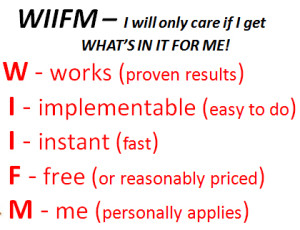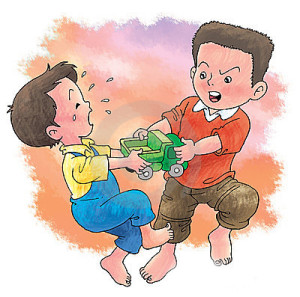 Many companies write into job descriptions the requirement to be able to multitask well, but really how effective is anyone in communicating while multitasking?
Many companies write into job descriptions the requirement to be able to multitask well, but really how effective is anyone in communicating while multitasking?Have you experienced talking to someone who is doing several things at once, who insists that they can still pay attention to what you’re saying, and you rightly sense that they are more than a little distracted and really won’t retain what you just told them? You get the standard “Ah huh” but doubt that much of the information you just relayed has actually sunk in. When you ask, “Are you sure that you’re going to remember?” the response of “Don’t worry, I’ve got it!” really has you worried.
The truth of multitasking is that we lose an average of 15 minutes every time we move from one task to another. So for every four times that you move back and forth between tasks you lose a productive hour. This is due to changing your train of thought and then the time needed to bring the brain back up to speed with where you were in your thinking, prior to the movement away. So multitasking is unproductive overall, although there is the feeling of being very busy, sometimes almost to distraction. But busy work does not equal to optimal productivity. Sometimes busy work just makes us feel like we’re spinning our wheels and getting nothing done, which is often the case.
And if you think that you are communicating well with yourself while multitasking, think again. You may be repeating the same thing over and over to yourself in your head to try and keep your place, but in reality the brain can only focus literally on one thing at a time.
There are times when you actually can multitask effectively, which happen when one or more of the tasks do not require much thought. Rehearsing your speech while taking a shower, talking on the phone while making dinner, watching TV and conversing while eating dinner – these are all examples of good multitasking. My personal favorite is listening to a book on tape while exercising to a video on TV. In all of these examples you can do several things at once and do them all well, because you only have to really focus on one of the tasks.
COMMUNICATION TAKEAWAY: if you are communicating with someone who is multitasking while you are trying to give them some information, weigh how important the information is that you are delivering in relation to how much concentration the tasks take that they are doing simultaneously. If you are communicating with yourself i.e. giving yourself information while trying to multitask, know that you won’t retain 100% if you do not give it your full attention.
QUESTION: How often do you switch tasks during the day instead of completing a task in a single sitting? How much more productive could you be with your time by staying focused instead of trying to multitask?








